1. Running a “Pop-Up BBQ” Without a License
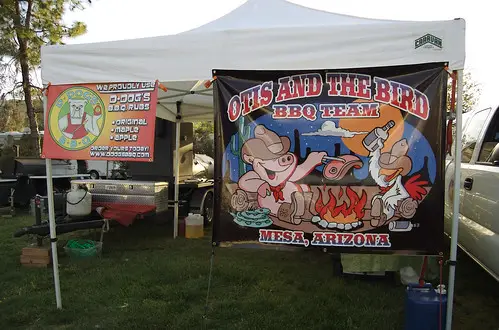
You might think selling ribs to your neighbors is just being a good neighbor, but health departments see it differently. Operating a food service business—even from your backyard—requires permits, inspections, and licenses. If you charge for food, you’re a vendor, and that brings on a whole list of regulatory requirements. Skipping those steps is a fast track to fines.
There have been cases where well-meaning backyard cooks were shut down for health code violations. And if anyone gets sick? You could be facing civil liability or criminal negligence. So keep your side hustle legal—or just grill for free and enjoy the good karma.
2. Deep Frying a Turkey Without a Permit
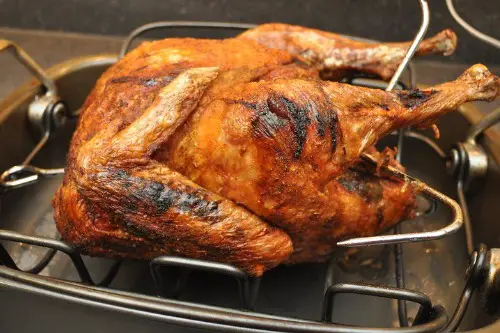
Deep frying a turkey in your backyard might seem like a holiday classic, but in many areas, it’s a fire hazard that could land you in hot water—literally and legally. Municipal fire codes often require permits or prohibit outdoor fryers due to the risk of explosion or fire. Some jurisdictions even mandate distance requirements from structures, trees, and fences. Ignoring those rules can earn you fines or even misdemeanor charges.
The issue isn’t just about safety—it’s about compliance. If you use a gas-powered fryer and don’t have the proper setup, you might be violating local zoning or safety ordinances. And if someone gets hurt or property is damaged, you could face civil or criminal charges. So before you fire up that vat of oil, check your local laws.
3. Building a Homemade Brick Oven Without a Permit
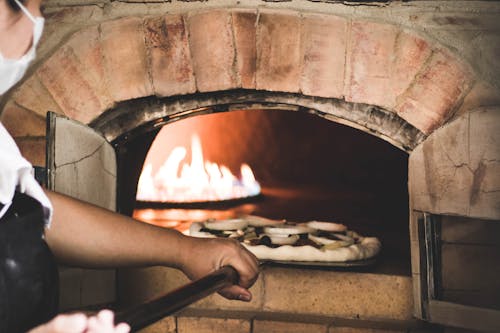
Who wouldn’t want a pizza oven in the backyard? But the second you start stacking bricks and cement, you might be violating building codes—especially if the structure is permanent. Most cities require a permit for outdoor construction that includes heating elements, chimneys, or gas connections. Failing to file can result in fines or orders to demolish your handiwork.
In some places, zoning laws also dictate how close you can build to your property line or neighboring structures. If your oven doesn’t meet those requirements, you could be reported by a nosy neighbor. Even worse, if your oven causes any damage—like smoke damage or fire—you could be held legally liable. That artisan margherita might cost you more than just mozzarella.
4. Cooking Over an Open Flame During a Burn Ban
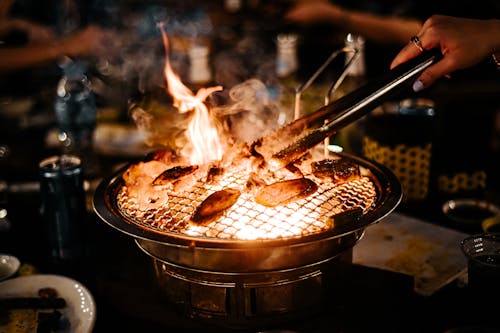
It’s a beautiful summer evening, and you want to cook your steak caveman-style—directly over an open flame. But if there’s a burn ban in effect, that primal dinner could land you in trouble. Burn bans are typically enforced during dry seasons and cover everything from campfires to fire pits. Violating one can result in serious fines or even jail time, depending on the jurisdiction.
Many people assume gas grills or enclosed cookers are exempt, but some regions go further and ban all outdoor cooking that generates heat or flame. If you’re caught during a high-risk period, you may also be held responsible for any fire damage. That could escalate to criminal charges like negligence or reckless endangerment. So check before you spark anything.
5. Using a Tandoor Oven Without Proper Ventilation
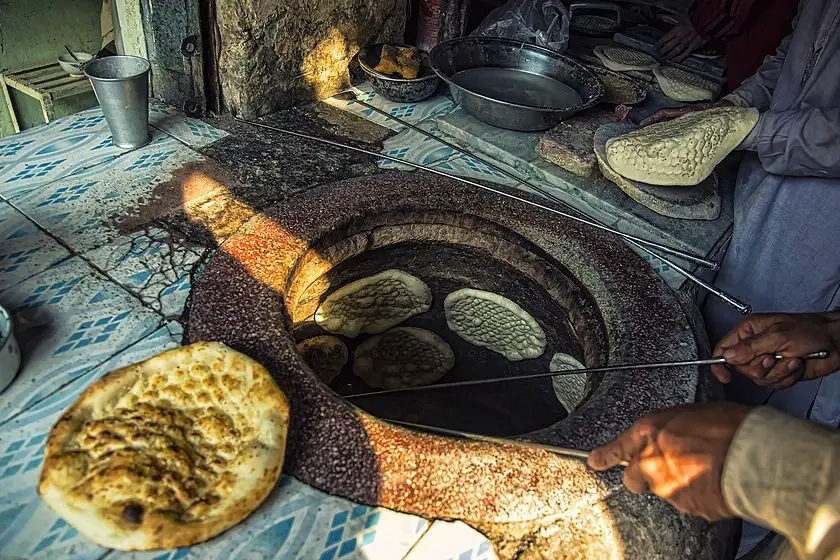
Tandoor ovens are awesome for achieving that smoky char on naan or tandoori chicken, but they get very hot—over 900°F in some cases. If you’re using one in an enclosed patio or under a wooden pergola, you could be creating a fire trap. Many fire codes require specific ventilation clearances for high-heat cooking devices. Skipping that step isn’t just dangerous—it might be illegal.
Also, most residential areas don’t allow high-BTU appliances that aren’t certified for home use. A homemade tandoor using propane or natural gas may violate local appliance regulations or building codes. That means if something goes wrong, you could be on the hook criminally and financially. It’s worth looking into the specs before your next naan night.
6. Butchering Your Own Animal Without Inspection
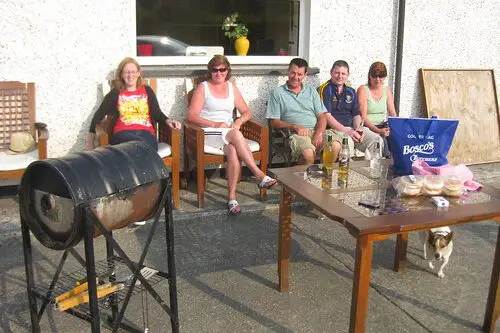
Backyard butchering sounds rustic, but in many states it’s regulated—and sometimes illegal—without proper inspection or licensing. If you slaughter a pig or chicken for a barbecue, you might be violating food safety laws meant to prevent disease. Some states allow limited “home slaughter” for personal use, but not all. And doing it in view of the public could also breach animal cruelty or public nuisance laws.
If you serve that meat to guests or neighbors, it crosses into “food service” territory. At that point, health departments may require inspection and certification. In some extreme cases, it’s even been prosecuted as illegal meat distribution. So unless you’re deep in farm country and know your state’s regs, it’s best to buy pre-butchered cuts.
7. Grilling in a Multi-Unit Complex
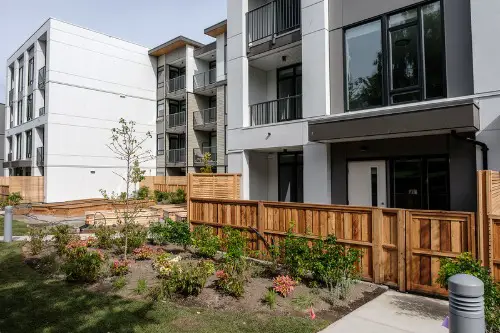
Apartment dwellers, take note: grilling on your balcony could be a crime, not just a lease violation. Many cities and fire departments prohibit the use of open flame devices on balconies of multi-unit buildings. That includes charcoal grills, propane tanks, and sometimes even electric smokers. The reasoning? It’s a huge fire hazard in a shared dwelling.
Violating these codes could lead to fines, eviction, or in rare cases, criminal charges if damage occurs. Even if your landlord says it’s okay, you still have to comply with city and state laws. And if a neighbor reports you, expect a visit from the fire marshal. That steak is not worth the citation—or worse, starting a four-alarm fire.
8. Dumping Grease Down Storm Drains
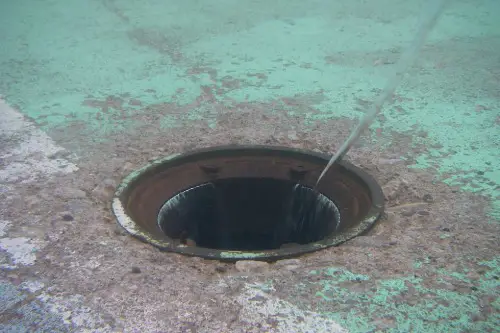
After a big backyard cookout, it’s easy to want to get rid of the mess quickly. But pouring leftover cooking grease into the street or a storm drain is straight-up illegal almost everywhere. Storm drains flow directly to rivers or lakes, and dumping grease is considered environmental pollution. That can come with steep fines or environmental violation citations.
In some places, it’s actually classified as hazardous waste disposal. Repeat offenders have been charged with misdemeanors, especially if the dumping affects wildlife or water treatment. Cities have specific guidelines for grease disposal—usually involving sealing it and trashing it. So don’t treat the drain like your personal grease trap.
9. Serving Wild Game Without a Permit
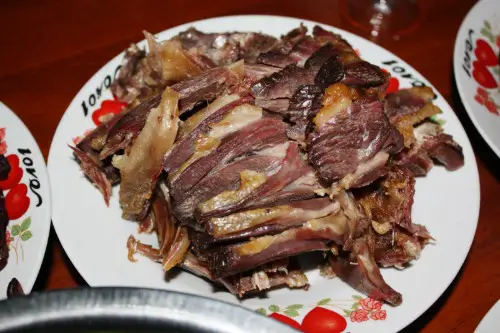
Grilling up elk or venison you hunted yourself might feel like a rite of passage, but sharing it could be a crime. In most states, it’s illegal to serve wild game to the public or even to private guests without a permit. The meat hasn’t been inspected and can carry parasites or diseases. This is why restaurants must source wild game from regulated suppliers.
Even if you’re not charging for it, handing out plates at a cookout can be seen as “distribution.” That makes it fall under food safety and public health regulations. You might be unintentionally violating hunting laws or health codes. So if you’re not licensed to share, better keep that venison burger to yourself.
10. Barbecuing with a Homemade Propane Setup
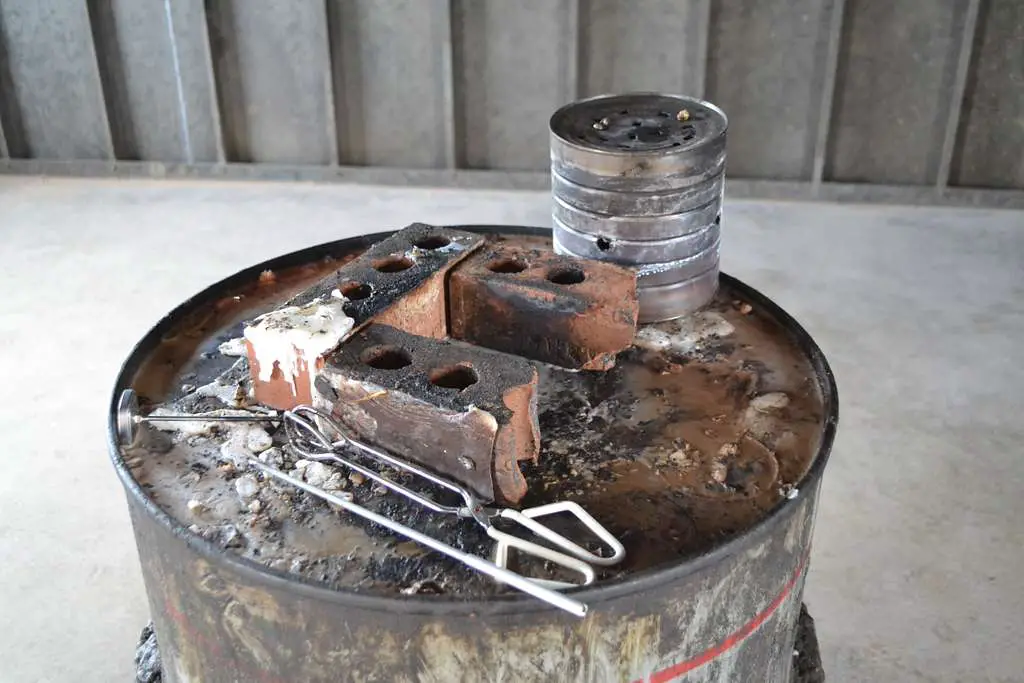
Tinkering with propane is risky business, especially if you’ve made your own backyard BBQ rig. Most cities require that gas appliances be installed and certified by professionals. A homemade or modified propane hookup can violate building codes and fire safety laws. It’s not just a safety issue—it’s a legal one.
If something goes wrong, like a leak or explosion, you could be held criminally liable. Even if no one is injured, the fire department could issue fines or force you to dismantle your setup. Insurance might not cover the damage either if it’s deemed an illegal modification. When in doubt, let the pros handle the gas.
11. Burning Trash to Start a Fire
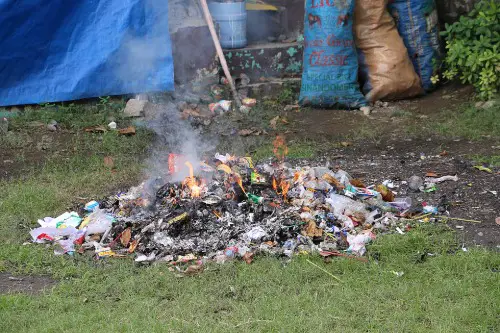
Some folks like to toss in paper plates or cardboard as fire starters. But burning trash, even something as harmless-seeming as newspaper, is banned in many areas. It can release toxic chemicals or smoke that violates clean air laws. The EPA and local agencies take this stuff seriously.
If you’re caught burning prohibited materials, fines can range from minor citations to thousands of dollars. In some places, it’s considered illegal waste disposal or even arson if a fire spreads. Just because it burns doesn’t mean it’s legal to torch. Stick with legal fire starters or seasoned kindling.
12. Smoking Meat with Illegal Wood
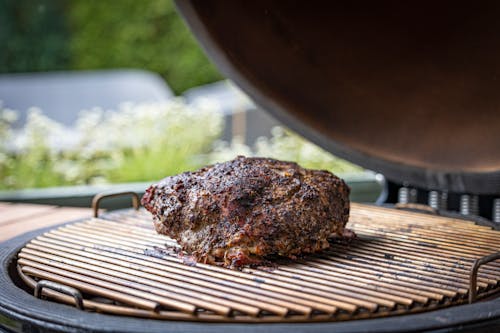
It’s tempting to get creative with your smoking woods—applewood, cherrywood, even some exotic options you find on camping trips. But using certain types of wood, especially if you harvested them yourself, might be illegal depending on local forestry laws. Some species are protected, or the act of collecting wood from public land could constitute theft or destruction of natural resources. That’s not just a slap on the wrist—it could be considered a criminal offense.
Even on private property, burning untreated or non-seasoned wood might violate air quality or burn regulations. States like California have restrictions on what kinds of wood can be burned during fire season. If you’re caught violating those, expect a hefty fine and possibly a visit from the fire marshal. It’s best to stick to commercially available, labeled cooking woods.
13. Cold Smoking Without a Permit

Cold smoking might seem like a low-risk, old-world technique, but it’s a regulatory minefield. Since it involves smoking food at low temperatures over a long time, it creates the perfect conditions for bacterial growth if not done properly. In many places, cold smoking commercially without a permit violates health codes due to the risks of botulism and other foodborne illnesses. Even doing it for friends and neighbors could be seen as unsafe food distribution.
Some jurisdictions classify cold smoking setups—especially homemade ones—as food processing equipment. That means your weekend smoked cheese operation could technically be illegal without inspection. If someone reports you or gets sick, expect the health department to come knocking. Unless you’re a licensed pro, it might be safer (and legal) to just buy your smoked salmon at the store.
14. Fermenting Sauerkraut Outdoors
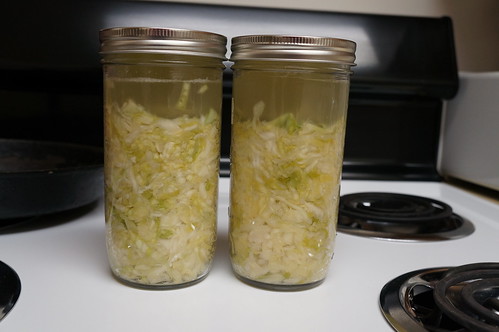
Fermentation is having a DIY renaissance, but not every setup is legal—especially when you take it outside. Backyard fermentation of foods like sauerkraut, kimchi, or pickles may violate cottage food laws in some states if the conditions aren’t considered sanitary. If you’re giving out jars to friends or selling at local markets, you could be crossing into unlicensed food production territory. That turns your probiotic hobby into a regulatory offense.
Outdoor fermentation also increases the risk of contamination, which raises red flags for health officials. If someone gets sick, liability kicks in fast, especially if your products weren’t processed in an approved kitchen. Some cities have cracked down on underground fermentation clubs or backyard “kraut stands.” So before you hand out a jar, make sure you’re not accidentally breaking the law.
15. Brewing Backyard Moonshine (Even Just a Little)
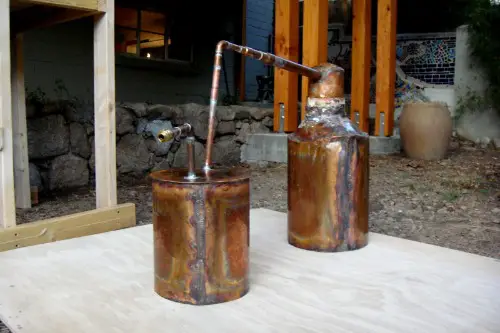
You might think it’s just a “fun project,” but home distilling alcohol without a federal permit is 100% illegal—even if it’s just for personal use. Unlike homebrewing beer or fermenting wine, distilling spirits crosses into serious regulatory territory. The Alcohol and Tobacco Tax and Trade Bureau (TTB) strictly prohibits unlicensed distillation. That means your backyard still could get you federally charged.
Even if you never sell a drop, the law sees your moonshine as untaxed and potentially unsafe. People have been arrested and fined thousands for having even a small DIY setup. It’s not just about taxes—it’s also about safety, as unregulated distilling can cause explosions or toxic alcohol. Want to stay legal? Stick to brewing beer.
16. Hosting a Backyard Pig Roast Without a Health Permit
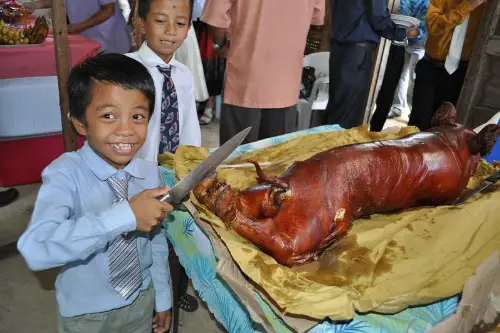
Whole-animal roasts are a backyard showstopper—but they often fall into illegal territory if you invite a crowd. In many states, cooking a whole pig requires a health department permit, especially if you’re feeding more than your immediate household. Public pig roasts can trigger food service regulations, even if it’s just a casual neighborhood cookout. That giant spit roast? It could be a code violation waiting to happen.
Health departments also worry about how the meat is stored, cooked, and handled during such events. A few too many guests and you’re suddenly in the realm of “public food service,” complete with inspection requirements. Failing to comply could result in fines or even a cease-and-desist. Always check your local health codes before roasting Wilbur in the backyard.
17. Using Homemade Charcoal or Fuel
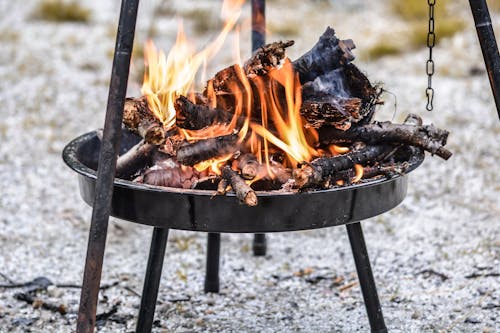
It might sound eco-friendly to make your own lump charcoal or wood pellets, but it can actually violate fire codes and environmental laws. Producing fuel at home—especially with high-heat processes like pyrolysis—can release hazardous smoke and chemicals. In some areas, it’s considered unauthorized fuel production and could lead to citations. Backyard charcoal pits have even been investigated for illegal burning.
If you use your homemade fuel in a BBQ and something goes wrong, expect even more scrutiny. Cities with strict air quality regulations may fine you just for the emissions. The added danger of fire hazards only increases the risk of enforcement. Buying commercial charcoal might not be as “rustic,” but it won’t get you arrested.
18. Using Gasoline as a Firestarter
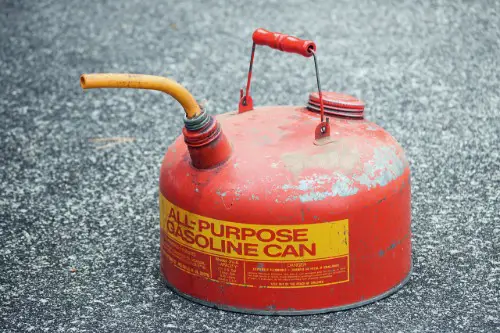
It should go without saying—but it still happens: some folks pour a little gas on the fire to get things going. Not only is this incredibly dangerous, but it’s also illegal in many jurisdictions under fire safety laws. Using gasoline as an accelerant can result in explosive flare-ups and is often classified as reckless behavior. Fire marshals take this one very seriously.
If an accident occurs, charges could range from negligence to arson, depending on the outcome. Even without a fire, witnesses can report you for creating hazardous conditions. Fines are steep, and you might end up on the hook for damages or injuries. Just buy legal firestarter logs—your eyebrows will thank you.
19. Building a Smoker from a Recycled Appliance
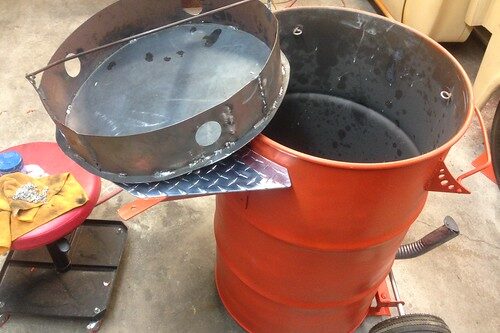
Turning that old file cabinet or refrigerator into a backyard smoker might look clever on Pinterest—but it could be illegal. Many states have strict regulations about using non-food-grade or treated metals for cooking equipment. Heating up unknown plastics, paints, or insulation can release toxic fumes into your food and the air. That’s not just gross—it’s a violation of health and safety laws.
If a neighbor catches wind (literally) of your backyard “fridge-smoker,” they could report it as an environmental hazard. Fire departments also frown on DIY smokers built from scrap because of the fire risk. Some areas require smokers to be UL-certified or professionally built. If you want to experiment with meat, it’s smarter to start with a real smoker, not the junk pile.
20. Backyard Cooking on Public Land Next Door
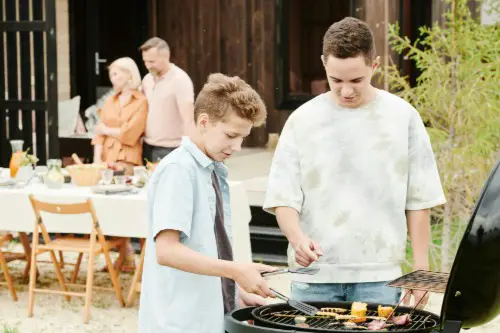
If your backyard borders public land—like a park, forest edge, or community easement—it might be tempting to extend your setup a few feet past the fence. Setting up a grill, smoker, or fire pit on that land is usually illegal and considered unauthorized use of public property. Even if it’s rarely patrolled, using public space for private cooking is trespassing or even vandalism in some areas. It only takes one call from a neighbor to turn your cookout into a citation.
Enforcement depends on the agency—city parks departments, forest rangers, or even the Department of Natural Resources could get involved. If you’re burning wood, using propane, or leaving grease behind, the environmental violations stack up quickly. The line between your yard and public space matters more than you think. Stay within your property line—or be ready to pay for it.
This post 20 Backyard Cooking Techniques That Could Technically Get You Arrested was first published on American Charm.


